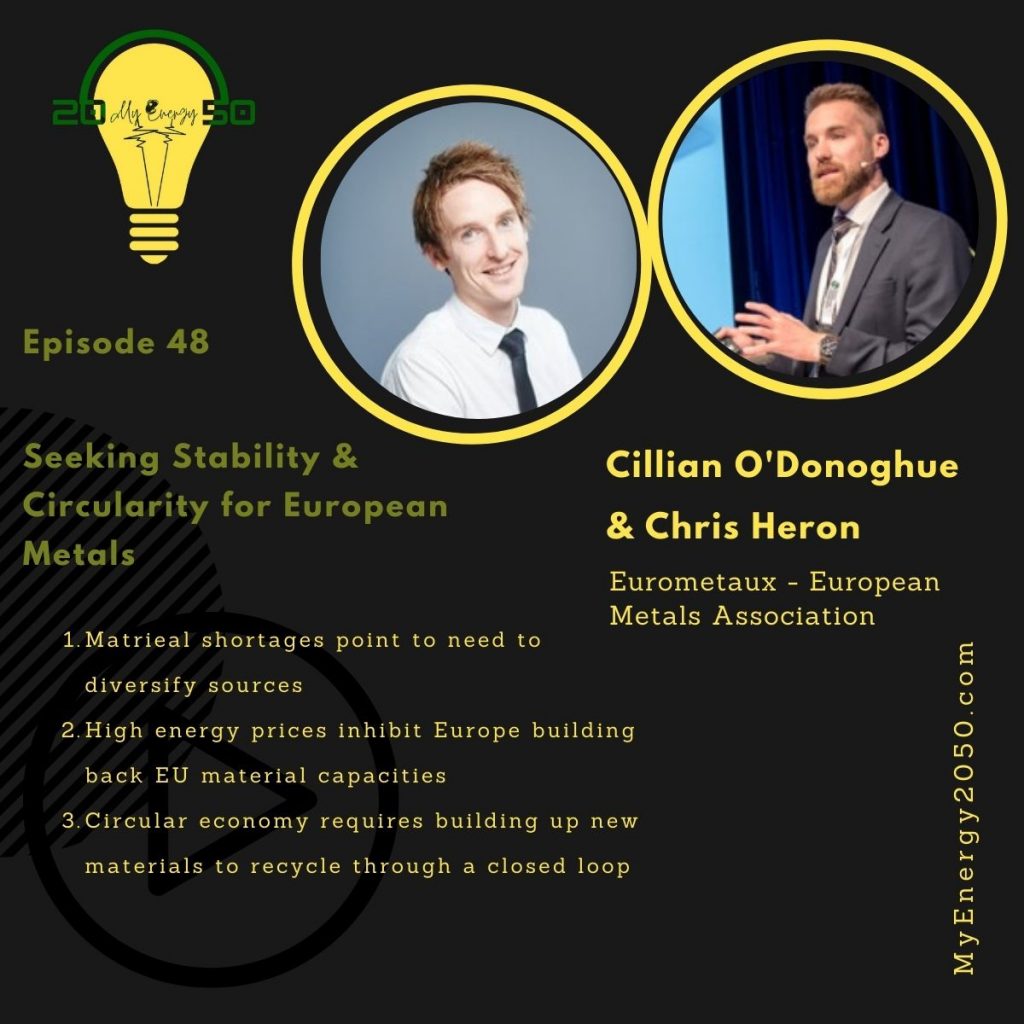The complexity of manufacturing from a global supply chain has never been more apparent than now. With supply shortages caused by the impact of Covid-19 and efforts to combat climate change, we are entering a new period, as I have stated in the past about Carbon Storms, where a confluence of events disrupt or place pressure on once stable markets.
At the end of 2021, there are shortages even with the common material of magnesium, with European production of cars, planes, and other lightweight aluminum alloys ceasing. The global shortage of computer chips sent the message of how integrated – and tight – global supply chains are. Now as Europe continues to produce everyday products like cars, but also higher-tech equipment necessary for the energy transition, there is a serious supply problem for European industry.
For this episode, we are joined by Chris Heron and Cillian O’Donoghue. Cillian, As you’ll hear, the interview with these representatives of the European Metals Association (Eurometaux) is perfect timing to understand both the current shortages and what is needed to improve the situation for European manufacturers.
I think you’ll find many parts of this episode surprising. And certainly informative. Previously, I just thought Europe needed to be producing everything at home to ensure the security of supplies for these materials, but as you’ll also find out, bringing it back home, may not be the answer.
Europe’s high energy prices and other key competitive factors, making the rebuilding industry a challenge. Rather, diversification of sourcing may be a more competitive and secure way forward.
Also, bringing back industry to Europe – requires lower priced energy. The factory has to be competitive in Europe. And now with the big effort to decarbonize power and electrify everything, rebuilding the European smelting and resource sector may be beyond the rationale.
In terms of energy, as Cillian points out, smelters and factories can use wind and solar, but these are intermittent power sources, so it’s necessary to develop large scale storage options – Hydro is a great example, but for other sources, a steady supply is important to ensure continual operation. This is not to say it can’t be done, but the challenges are there.
In regards to building the circular economy, we put our hands down into the recycling box to find out that recycling can happen in the sector. But as Chris points out, the materials going into batteries or other new technologies are not at a sufficient level within the economy to create a recycling loop. Therefore, we need to rely on raw materials to build up a base for recycling.

We then get to the sources of raw materials. How can the industry source the materials from mines or locations that do have high environmental and social standards? As I’ve discussed in previous episodes, Maty .. And Martin.. Verifying the supply chain becomes very important.
Towards, the end we get to the carbon border adjustment mechanism that is being proposed by the EU Commission, to ensure that materials brought into the EU are made with sustainable energy. However, according to Chris and Cillian, this turns out to be deficient in its application. Listen to find out why.
Related episodes:
The Value of Climate Accounting — Martin Wainstein (Ep. 35)
The Equitable Battery Alliance: Innovating fair supply chains – Mathy Stanislaus
Dr. Michael LaBelle is an associate professor at Central European University in the Department of Environmental Sciences. He produces the My Energy 2050 podcast to change how we communicate and improve the energy transition.
